DCW | 新闻通稿
Pressemitteilungen
德中经济联合会董事会(DCW)关于德国政府中国战略的声明
德国科隆,2023年7月14日——德国政府在当前的战略文件中确认:没有中国是不行的。生产与市场是紧密相连的,而且是双向紧密相连的。德国和欧洲需要中国市场,而中国也需依靠欧洲销售市场。
尽管如此,企业应当自行规避集群风险,这无非是从双重或多重采购模式的经典创业理念中得到的借鉴。与此同时,中国一直作为一个重要的商业伙伴,但是在政治上却面临越来越多尖锐的批评声音: 如中国政治体系对经济关系的强烈干预,在德国政府看来是一个巨大的干扰因素和风险因素;德国不会参与到 “一带一路“ 的倡议中去,应积极开展与世界其他地区和亚洲国家的合作。企业应当将安全政策重新纳入考虑,积极参与中国的业务不应由国家机制来提供保障。不应将利益私有化,而将亏损的风险社会化。
然而政界对企业参与国际项目中具体如何支持,仍不清楚。知名经济学家马塞尔-弗拉茨舍尔(Marcel Fratzscher)也指出,德国政府是否在对华外交政策中将经济放在首位仍是未知数。德国政府的目标及很多事情将如何在欧洲层面得到深化和实现,仍欠具体化。
德国政府在中国战略中强调,希望全面提高对华工作能力,并促进不同层面的交流: 为实现这一目标,德国政府将提供哪些具体支持,尚需拭目以待。
我们德中经济联合会致力于敞开边界、通畅的商品和服务交流,尤其是市场伙伴之间相互尊重的深入沟通。特别是面临当前国际结构的根本性变化,保持良好的对话和有益的交流是非常重要的。当然,亚洲不仅仅是中国,印度和东亚联盟也同样值得关注。然而就亚洲目前的经济局势来看首当其位还是中国,而中国国民经济对于德国不仅是多年来最重要的贸易伙伴,也是德国企业不可或缺的销售和采购市场,并且还在某些领域成为创新的推动者,同时努力制定自己的标准。鉴于中国的重要性,对于许多德国企业来说,寻找有同样巨大市场潜力和相应供应链的替代市场将面临重大挑战。目前已有企业报告说,供应链的迁移导致了时间的延误、成本的增加和质量的下降。
在应对全球挑战的过程中,中国在经济领域就其各种积极举措扮演一个不容忽视的重要角色。从总体上看,两国企业都应拓宽视野,将自身业务的风险降至最低,这一点非常重要。对于德国和中国企业的合作交往而言,这种 “去风险化” 可以成为一种稳定的因素。然而,风险最小化不应被过分强调,否则它很快就会在中国被理解为脱钩的代名词。在这方面需要娴熟的外交技巧。与此同时,企业和商业组织也可以通过其在中国或德国的专业知识为国际关系的稳定做出贡献: 需要特别指出的是,在这份中国战略文件中所缺少的是国家政府支持的具体措施。
作为一个非政府公益性组织,德中经济联合会将继续为促进中德两国企业间的理解和改善经济环境而努力,并将乐于为德国政策制定者提供其专业知识和咨询服务。此外,德中经济联合会的年度活动——于2023年10月31日举办的德中经济合作研讨会(DCWT),将把业务可靠性作为活动的两个重点主题之一,并具体讨论德国政府初步实施中国战略的实践经验。
联系方式:
Silke Besser | 白希可,干事长
德中经济联合会
Unter Sachsenhausen 10–26, 50667 Köln
电话:+49 221 120370
电邮:
Große Probleme bei der Visavergabe: Umfrage der DCW zur aktuellen Praxis deutscher und chinesischer Behörden
Die Corona-Pandemie hat bis heute einen großen Einfluss auf die Visavergabepraxis im sino-europäischen Reisekosmos. Die Deutsch-Chinesische Wirtschaftsvereinigung (DCW) e. V. hat in einer Umfrage an ihre Mitglieder nun festgestellt, dass der überwiegende Teil der Probleme mit deutschen Behörden in China aufgetreten sei, ein geringerer Teil auch mit chinesischen Behörden in Deutschland. Die meisten Beschwerden gibt es hinsichtlich der Terminvergaben – somit seien Termine bei den jeweiligen Behörden besonders schwer zu erhalten. Die Problematik der Visavergabe habe daher großen negativen Einfluss auf die wirtschaftliche Praxis zwischen Deutschland und China – die Schäden werden teils auf Millionenhöhe beziffert. Die DCW möchte mithilfe der Umfrage-Ergebnisse auf den enormen Verbesserungsbedarf bei der Visavergabepraxis hinweisen und fordert darüber hinaus, umgehend die Kapazitäten, insbesondere bei der Terminvergabe, zeitnah deutlich auszuweiten.
Deutsch-Chinesische Wirtschaftsvereinigung (DCW) e. V., Köln, 31. März 2023 — Durch die Corona-Pandemie ist der Reiseverkehr zwischen Deutschland und China in den letzten Jahren durch verschärfte Einreisebestimmungen immens eingeschränkt worden. Die jeweilige Visavergabepraxis hat vor diesem Hintergrund einen großen Einfluss auf die bilaterale Geschäftspraxis und ruft nicht selten große Unzufriedenheit hervor. Die DCW hat infolge dieser Problematik ihre Mitglieder zu ihren Erfahrungen mit der Visavergabepraxis befragt. Diese Umfrage hat wertvolle Einblicke in die Problematiken geliefert, mit denen Wettbewerber im deutschen China-Geschäft und im chinesischen Deutschlandgeschäft konfrontiert sind.
Über die Hälfte der Befragten (54,29 Prozent) gaben an, in letzter Zeit Probleme mit deutschen Behörden in China gehabt zu haben. Ein kleinerer Teil (17,14 Prozent) hatte seinerseits Probleme mit chinesischen Behörden in Deutschland. Rund 11 Prozent der Befragten hatten mit beiden Behörden zu kämpfen. 17,14 Prozent der Befragten hatten im Pandemie-Zeitraum keine Probleme bei der Visavergabe.
Aus der Umfrage geht weiter hervor, dass die größte Visavergabe-Problematik bei der Terminvergabe lag. Die Mehrheit der Befragten (ebenfalls 54,29 Prozent) gab an, kein Visa-Appointment bei den jeweiligen Behörden erhalten zu haben. Ein häufig genanntes Problem (14,29 Prozent) war des Weiteren auch die Ablehnung von Personen aufgrund von Sicherheitsbedenken. Als weitere Probleme wurden u. a. fehlende ordnungsgemäße Einladungen, verfehlte Fristen sowie allgemeine Unsicherheit angegeben.
Von den Befragten, welche Probleme bei der Visavergabepraxis feststellten, gaben 65,52 Prozent an, dass die Visapraxis ihr Geschäft bedrohen würde. Einige Befragte berichten von Schäden in Millionenhöhe sowie dem Verlust von wichtigen Marktchancen.
Die Problematik für Reisen von China nach Deutschland liege erfahrungsgemäß darin, dass die Visa-Vergabestellen in den Generalkonsulaten und der Deutschen Botschaft in China aktuell immens überlastet seien. Gründe hierfür seien zum einen eine hohe personelle Unterbesetzung und darüber hinaus ein Rückstau aus der Zeit der Coronapandemie und eine damit verbundene erhöhte Nachfrage nach Visa. In Deutschland gibt es der Umfrage zufolge ähnliche Probleme: Laut der Befragten war bzw. ist es teilweise kaum möglich, z. B. in Frankfurt oder München Termine für Visaanträge zu bekommen. Dies sei oft nur in Berlin möglich gewesen, was für viele Reisewillige mit zu viel Aufwand verbunden wäre. In diesem Zusammenhang kam es somit nicht nur zu schwerwiegenden Beeinträchtigungen des China-Geschäfts, es wirkte sich teils auch auf die Karriere von Einzel-Personen aus. Einige Befragte wünschen sich unter anderem ein Visaverfahren ohne Empfehlungsschreiben der Regierung zurück.
„Dass mit Wegfall der Sanktionen die Nachfrage nach Geschäftsvisa im deutsch-chinesischen Wirtschaftsverkehr stark zunehmen würde, war vor dem Hintergrund der intensiven Beziehungen klar. Dass die Ressourcen dazu nicht rechtzeitig geschaffen wurden – und scheinbar werden – ist ein absolutes Unding“, so Alexander Hoeckle, Vorsitzender des Vorstands der DCW. Die Folgen sind, wie die Umfrage der DCW eindeutig belegt, gravierend, teils existenzbedrohend.
Die DCW fordert daher umgehend, die Kapazitäten, insbesondere bei der Terminvergabe, zeitnah deutlich auszuweiten. Diese Forderung richtet sich vor allem an die deutschen Behörden, denen die Befragten mehrheitlich Defizite bescheinigen. So könne es beispielsweise nicht sein, dass chinesische Wirtschaftsvertreter, die eigentlich Geschäftspartner und/oder eine Messe in Deutschland besuchen wollen, in ihrer Not über europäische Nachbarländer einreisen müssten. Dies bedeutet nicht nur unerheblichen Mehraufwand für die Reisenden, sondern schadet auch dem Image Deutschlands massiv. Auch ist anzunehmen, dass viele Geschäfte dadurch gar nicht erst angebahnt werden können, da manchen dieser Aufwand zu hoch ist und man daher von der Reise/dem Besuch absieht.
Bei Fragen stehen wir Ihnen gern zur Verfügung:
Deutsch-Chinesische Wirtschaftsvereinigung e.V.
Silke Besser
Tel.: +49 221 120370
E-Mail:
德中两国企业对创新合作充满希望
德中经济联合会
2018年11月15日,科隆 —— 自主创新和技术研发在中国越来越受到重视。近年来,中国一改过去“世界上最大的代工厂”的形象,中德两国在技术创新领域的合作也不断加深。但是由于两国文化和制度的差异,这条合作之路不总是一帆风顺。由德中经济联合会主办的德中经济合作研讨会(Deutsch-Chinesischer Wirtschaftstag)2018年特别以“创新”为主题,邀请德中两国的政府代表、企业代表和经济领域的专家,于11月15日齐聚科隆,共同讨论“德国制造”与“中国创造”的有机结合,以及两国今后在创新领域的合作模式。
中国深圳创新创业大赛第一届国际赛慕尼黑分站赛落下帷幕——“用于韧带重建的一种新的医疗设备”项目夺得头筹
德中经济联合会
2017年03月25日,科隆 —— 德国慕尼黑当地时间3月24日,由深圳市人民政府主办,龙岗区人民政府、坪山区人民政府、深圳市人力资源和社会保障局、深圳市科技创新委员会共同承办,德中经济联合会协办的中国深圳创新创业大赛第一届国际赛慕尼黑分站赛成功落下帷幕。慕尼黑分站赛在慕尼黑工业大学创新创业中心(UnternehmerTUM)举办。
-
 16.03.2020
16.03.2020为了防止新型冠状病毒蔓延,德中经济联合会将于明天(3月17日)起实行 Home Office 家庭办公制度。您仍然可以通过邮件及电话(仅 +49 221 120 370 和 +49 221 139 7701)与我们进行联系。传真暂时停止使用。
-
 29.01.2020
29.01.2020鉴于新型冠状病毒SARS-CoV-2的疫情爆发之后网络信息井喷,DCW为您提供一些链接和关于应对大流行的信息,希望可以帮助到您,在大量新闻中获取相对重要的信息。
-
 15.01.2020
15.01.2020作为中国深圳创新创业大赛第四届国际赛的德国官方合作伙伴及德国柏林分站赛的承办单位,德中经济联合会在此诚邀欧洲范围内有创业梦想和创新项目的青年才俊积极参与本次大赛。
-
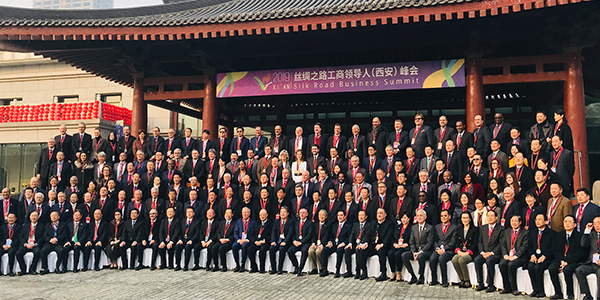 09.12.2019
09.12.2019德中经济联合会干事长白希可女士访问2019丝绸之路工商领导人(西安)峰会与国际政府和经济代表进行谈话。
-
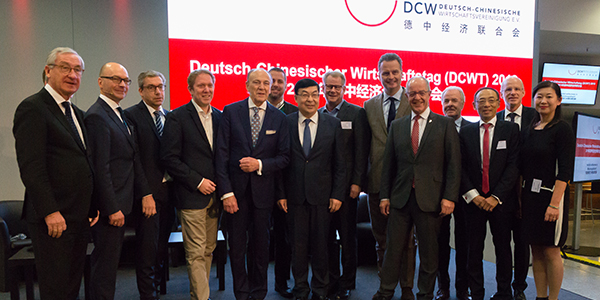 04.12.2019
04.12.2019德中经济联合会感谢所有演讲嘉宾、赞助商和现场观众光临2019年12月3日在门兴格拉德巴赫市普鲁士公园球场举办的2019年德中经济合作研讨会!⚽
-
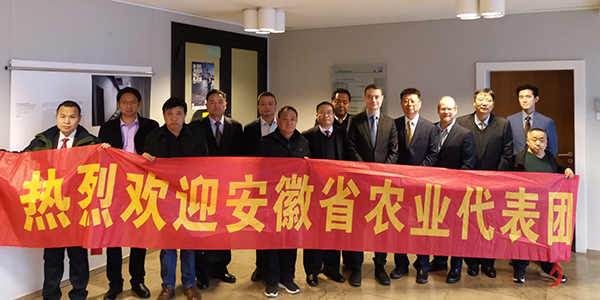 29.11.2019
29.11.2019来自安徽省的农业领域代表团访问德中经济联合会的科隆办事处。
-
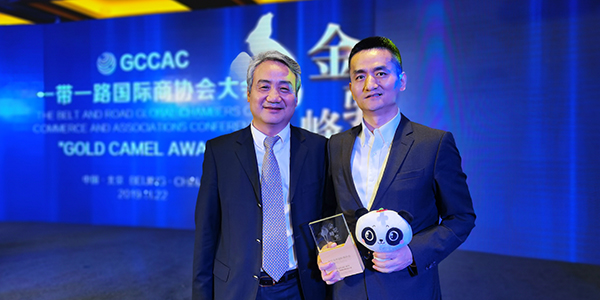 25.11.2019
25.11.2019作为去年年参会协会, 德中经济联合会赢得 “一带一路国际商协会大会” 发的 “金驼峰奖”,并获得 “友好合作商协会” 称号。
-
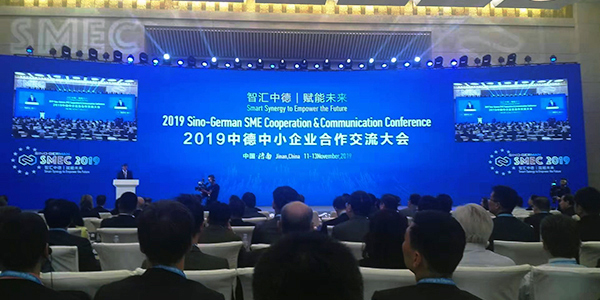 11.11.2019
11.11.2019德中经济联合会和去年一样参加2019年中德中小企业合作交流大会。
-
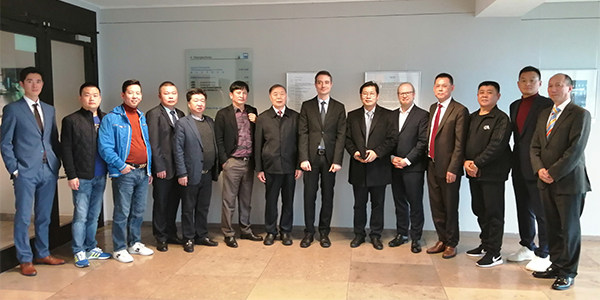 30.10.2019
30.10.20192019年10月28日,来自湖北省的政府和企业代表团访问德中经济联合会办事处。
-
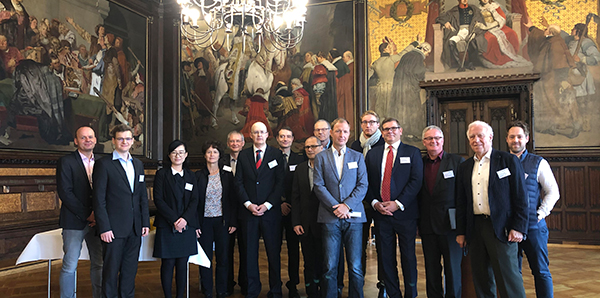 21.10.2019
21.10.20192019年10月21日,DCW在埃尔福特举办地区见面会。活动话题是环境保护、技能短缺等情况下投资条件的变化。
-
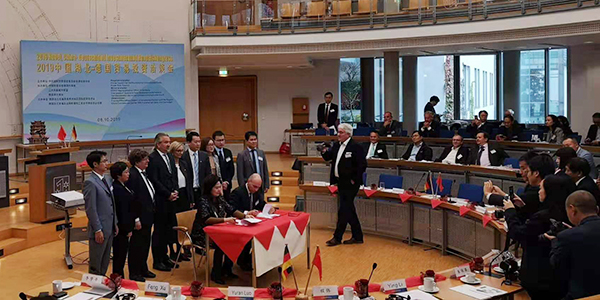 08.10.2019
08.10.20192019年10月8日,德中经济联合会理事贺可乐先生与湖北省贸促会副会长梁君君签署友好合作协议。
-
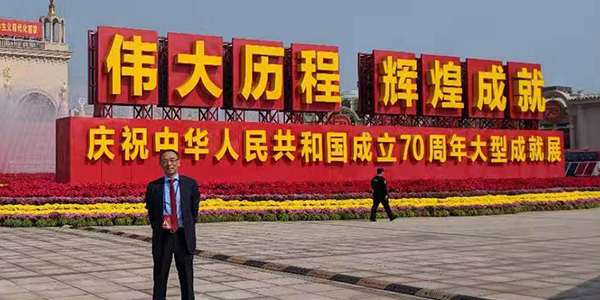 30.09.2019
30.09.2019德中经济联合会副理事长吴毅先生访问在北京举办的中国国庆节典礼。
-
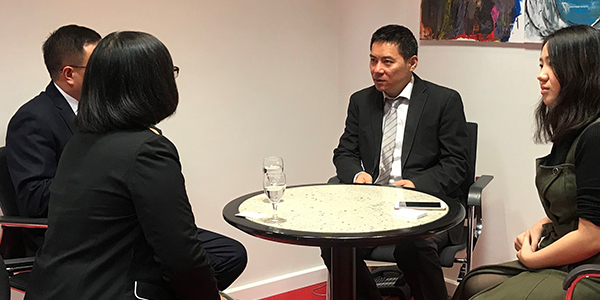 18.09.2019
18.09.2019中国贸促会济南市分会代表团本周访问德中经济联合会北威州分会。
-
 13.09.2019
13.09.2019德中经济联合会祝您中秋节快乐!
-
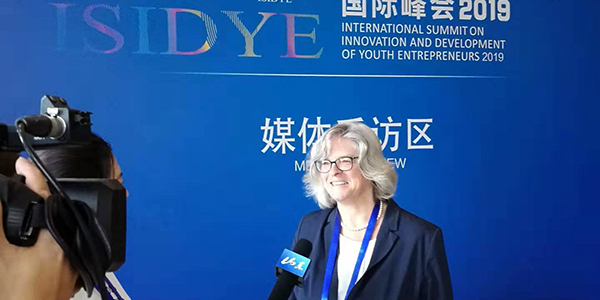 09.09.2019
09.09.2019德中经济联合会访问在济南举办的2019年青年企业家创新发展国际峰会。

扫描二维码关注我们微信公众号
联系人:
 杨慕白 | Jan Miebach
杨慕白 | Jan Miebach
德国事务经理
jan.miebach@dcw-ev.de
办事处:
德中经济联合会 – Deutsch-Chinesische Wirtschaftsvereinigung e.V.
Ernst-Schneider-Platz 1
40212 Düsseldorf, Germany
电话: +49 211 788 813-20
传真: +49 211 788 813-25
E-Mail: info@dcw-ev.de
行业对接会最新报告
投资洽谈会最新报告
- 襄阳-德国投资贸易合作推介会
- 天津滨海新区投资环境说明会
- 浙江-德国投资贸易合作推介会
- 投资北京推介会:中国首都作为投资地点
- 中国(河南)德国智能制造产业合作对接会
- 沈抚新区推介对接会
- 中国宿迁(德国)投资环境说明会
- 中国展示洽谈会之“江西省战略新兴产业推介会”
- 第七届中国企业跨国投资研讨会
- 德中实业合作对接会
- 中国展示洽谈会之 “第一届中国(北京)国际服务贸易交易会” 德国组团推介会
- 中国展示洽谈会之佛山市推介会
- 中国展示洽谈会之廊坊市国有土地重点开发项目推介会
- 中国展示洽谈会之中国国际进口产品博览会德国推介会
- 中国展示洽谈会之重庆经济技术开发区推介会
- 中国展示交流会之2010年中国(欧洲)汽车零部件贸易洽谈会・科隆


